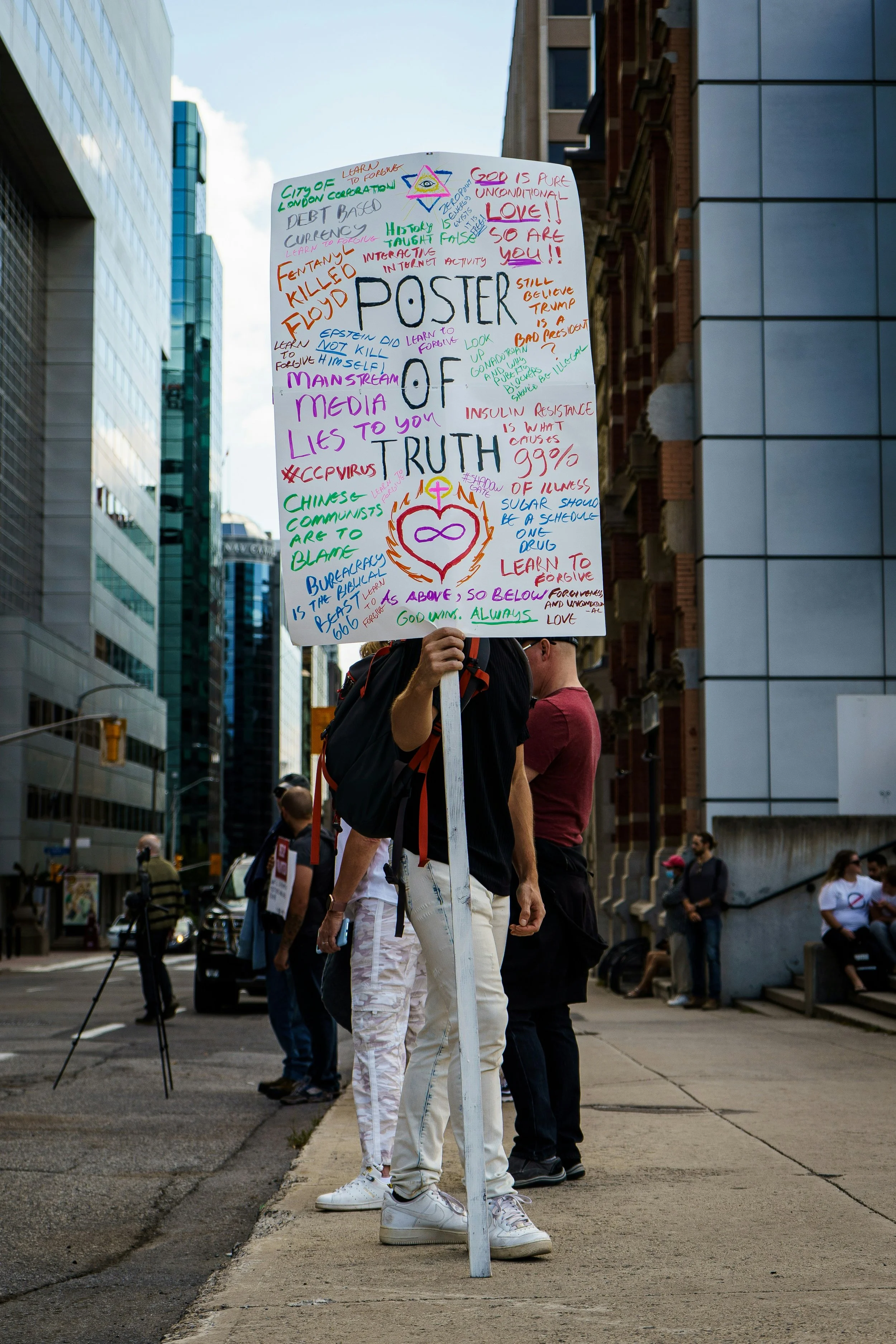
Difficulties & Challenges of Six
Fear, Anxiety, Worry
When Sixes become less healthy, their level of anxiety intensifies. The Vice of Six is straight up Fear. Russ Hudson calls this “angst”, the existential dread or anxiety that we feel for no specific reason.
Most of us can relate to this anxious, nervous feeling as one we would rather not have, but we tend to feel it most when we face a certain situation like an exam, a medical procedure, having to speak in a meeting and so on. In this context, anxiety is normal and even helpful. Problem anxiety is more free-floating and a state we can feel for no particular reason- or it may have a reason but just be excessive. Our hearts may pound, we may break into a sweat, we may feel paralyzed, it may happen too often. This is when anxiety feels overwhelming and becomes a mental health concern. More and more we hear how anxiety is a problem today for kids, students, and indeed everyone.
It's said that one third of the North American adult population experiences problems with anxiety.
Every personality type experiences anxiety, and anyone can have an “anxiety disorder” such as social anxiety or panic attacks. If problem anxiety is this widespread, it speaks to something going on in society and it can’t only be Sixes who are suffering.
But for our purposes, we can say that worry and anxiety are part of the Six personality pattern. What happens for the stressed out Six is rooted in the way they think. The hallmark of the Six is the “doubting mind” and under stress this ramps up. Sixes are thinking and rethinking, doubting, second guessing and feeling uncertain, which generates anxiety. This might be heard in their words- I don’t know, it depends, maybe/maybe not- and seen in their indecisiveness.
This intense thinking and doubting cause the Six to look outside of themselves for answers. They will consult with trusted others, friends, family, authority figures, books and so on, to see what they advise. This consulting also goes on inside their heads, where different voices of people and authorities are heard. Sixes have what Riso-Hudson call an “Inner Committee” in their heads. The bouncing around can be internal between different viewpoints. This is an inner doubting and not knowing where to land.
Something to note is that Sixes may not identify the feeling of fear or anxiety when they are more in their personality. They may recognize worry, doubt or vigilance, “scanning” for what might go wrong, thinking about all the angles, wanting to have all the information available, wanting to know the lay of the land and how to prepare. But this type of thinking seems natural and feels like a skill not a problem. So, the Six may just think they are on top of things, prepared and on the ball- one Six said “I worry but I only worry about the things I need to worry about”. A sense of just doing what is necessary, being prepared, might make it hard to recognize that there is a problem and keep the Six locked into the personality pattern.
This also makes it hard to recognize how not being able to get out of their heads, has a consequence for Sixes in how they live. The more the Six believes their fears, the more they lose touch with their self-confidence. Increasingly unsure and believing others have the answer, Sixes may feel as if they just don’t have what it takes.
The practical impact of the lack of self-confidence, the worry, and the vigilance about what might go wrong, is that the less healthy Six will take fewer risks in life. They may spend their time increasingly in preparation mode or playing it safe. For example, they may not want to travel or try new things. They might turn down opportunities and lead a more constricted life because things out there look scary. We can all relate to how our fears can limit our choices.
“Each of us must confront our own fears, must come face to face with them. How we handle our fears will determine where we go with the rest of our lives. To experience adventure or to be limited by the fear of it.”

The phobic and counter-phobic pattern will also show up here. Most of the time the Six might not be able to decide something, not know what to do, and so will be hesitant. But at times they might jump into action to resolve the doubt. Remember that whatever you say about the Six, you can often also say the opposite because there is a back and forth, “ping-pong ball” pattern in their actions based on their own uncertainty.
The solution for the Six goes back to regaining what we called Basic Trust. The more constricted Six is out of touch with their inner guidance, their trust in themselves and their capacity to know what to do. Looking outside for answers or even looking in our own thoughts for answers can have us going in circles. To contact our grounded knowing we must sense inwardly with presence. And when we do this, we may first encounter our fear or anxiety. This is true for all of us, perhaps you have sensed an existential dread when you meditate or sense into your body- a fear “in the pit of your stomach” or solar plexus that is hard to stay with.
So real courage is required to stay with this inner work. When the Six begins to see how all their preparation is fueled by fear, this is very uncomfortable awareness. Going through fear we can land in a calm grounded place, but we don’t experience this at first, or we may land then bounce out for a long time. We have to trust and persist in our work. This is the journey of the Six and the Six in all of us- to “get out of our heads” and find our inner guidance.
Consider what A. H. Almaas says about Basic Trust as a spiritual matter:
Basic trust is experienced as an unquestioned sense of safety and security that is intrinsic to the way you act and live. When deeply present, this trust is so much a part of the fabric of your soul that it is not something you think about—it is preconceptual, preverbal, pre-differentiation. Furthermore, it is so basic that events and circumstances in your life cannot disrupt it. For this reason, basic trust is different from our usual psychological sense of trust. Our ordinary confidence in people and situations is highly conditional and dependent on familiarity and reliability. Painful experiences or personal betrayals can disrupt our trust in the external and internal elements of our life. So ordinary trust is of little value for stepping into the unknown because those elements are always subject to change.
Facets of Unity, pg. 22
Suspicion, Negativity, Pessimism
Doubt and not knowing what to trust easily becomes a suspicious mindset. As the Six becomes more stressed, they can become overly suspicious, negative and pessimistic.
We know that the Six is concerned about who can be trusted- people, authorities, groups and so on. Having doubts about who is trustworthy can be healthy skepticism as we have seen. But when unhealthy, this can become an overly suspicious mindset.
As the world looks increasingly scary and people look increasingly untrustworthy, the unhealthy Six is no longer accurately perceiving reality. Sixes feel that they can see below the surface to what is really going on, and they are often correct. But now there is a skewed perception, and suspicion and mistrust which may be unfounded. At its worst this can become paranoia- not in the clinical sense although this is possible, but in the sense of not trusting people’s motives.
Sixes use the defense mechanism of “projection” which means they come to experience their inner fears as located outside of themselves. Others appear sketchy partly because of this mechanism. This excessive mistrust affects the quality of the Six’s relationships as well as their peace of mind.
Similarly, the Six focus on what might go wrong can escalate to creating worst-case scenarios and believing or fearing they will happen. A lack of perspective on the likelihood of negative events occurring takes the Six beyond simple preparedness to fearing the worst. Consider the difference between a pilot who trained and prepared for the emergency event and saved the day when disaster struck and a pilot who became afraid on each flight that the plane would crash. It would be impossible to fly with this mindset.
“Catastrophizing” is a word for mentally creating the worst possible outcome and believing it will happen. For example, a relationship breakup might lead to the thought “I will never find love” or a physical symptom might lead to the thought “I have cancer.” The prediction is out of whack with objective reality and causes a lot of mental and emotional stress.
If you google “catastrophizing” you will see that it is a very common problem. Believing things are worse than they really are takes a toll on health and well-being. This downward spiral into suspicion and catastrophizing can be dangerous, we know that young people may commit suicide from this kind of thinking and social media has made this worse.
Pessimism can also become a general mindset for the unhealthy Six. Pessimism is defined as “a tendency to see the worst aspect of things or believe that the worst will happen; a lack of hope or confidence in the future”. Pessimism is a heavy outlook on life. The perception of outcomes is skewed towards the negative and the person loses hope, underestimating their own strength and coping skills.
Rebellious, Stubborn
Sixes have “issues with authority”. Because they are building a safety network, Sixes want to find authorities they can believe in and trust- they are sensitive around trust. They can also dislike and suspect authority, especially the misuse of authority. We all have had bad teachers, bosses or authority figures in our lives and felt upset that they hold power over us and others. We can all relate to the Six sensitivity to abuse of authority. But interacting with “authority” generally is part of life and becoming more stressed around this issue can create difficulties for the Six.
Read the dictionary definition of authority and see if it gets your back up: “the power or right to give orders, make decisions, and enforce obedience”.
Does that make you feel oppositional? This is what Sixes feel. Maybe you would submit to this power if you were sure the authority was well intentioned and fair but, even then, it is questionable why we would ever enjoy being subject to this sort of authority. The issue can become how to live and work in the world where authority is part of the system.
We have mostly focused on the phobic side of Six- the anxiety and fear pattern. There is also the counterphobic Six which is the moving against the fear by being daring, aggressive or risk-taking. Remember some Sixes are predominantly counterphobic while most go back and forth between being mostly phobic and at times counterphobic. When it comes to authority issues there can be a counterphobic reaction. The suspicion, distrust and dislike of authority might show up as rebellion- open opposition. The healthy Six may show up as a leader against unjust authority, but when less healthy the Six can be unwisely rebellious. Rebelling is a healthy instinct when appropriate- and can become oppositional and contrary when misguided or overdone.
Stubborn certainty is also a counterphobic Six reaction. When they have landed on an authority, belief, or group, the Six can become hard-headed and stubborn about it. The belief they decide to believe, the group they decide to join and so on becomes a safe place where anxiety is resolved. Now the less healthy Six doesn’t want to question or hear contrary opinions. If they are fortunate the Six will find a healthy and supportive belief system or group (such as AA or a good religious or spiritual group). But when unhealthy, Sixes can become involved in cults, gangs and darker conspiracies and groups because it relieves their fear and feels like a safe place.
The experience of most Sixes is not this extreme, but they may be able to recognize how they are in search of an authority to trust and how they are reacting to authority in their lives, and how this is part of looking outside of themselves for guidance instead of contacting their own inner guidance.
Consider how this reactivity around authority ties together your understanding of Six. The whole gestalt of Six- feeling uncertain and anxious, trying to create a security network through trusted outside sources, mentally doubting and bouncing back and forth, being both loyal and skeptical - how this all relates to losing contact with their own inner guidance. The Six, and the Six in all of us, puts a lot of effort into figuring out what to trust and rely on and being vigilant as to what can go wrong “out there”. Turning within and finding their own solidity, their own grounded presence and discernment, is needed.









